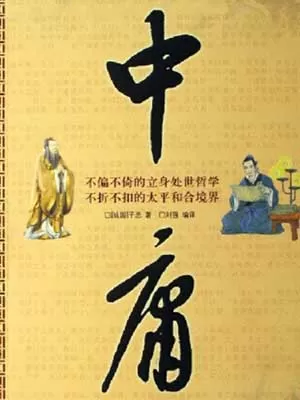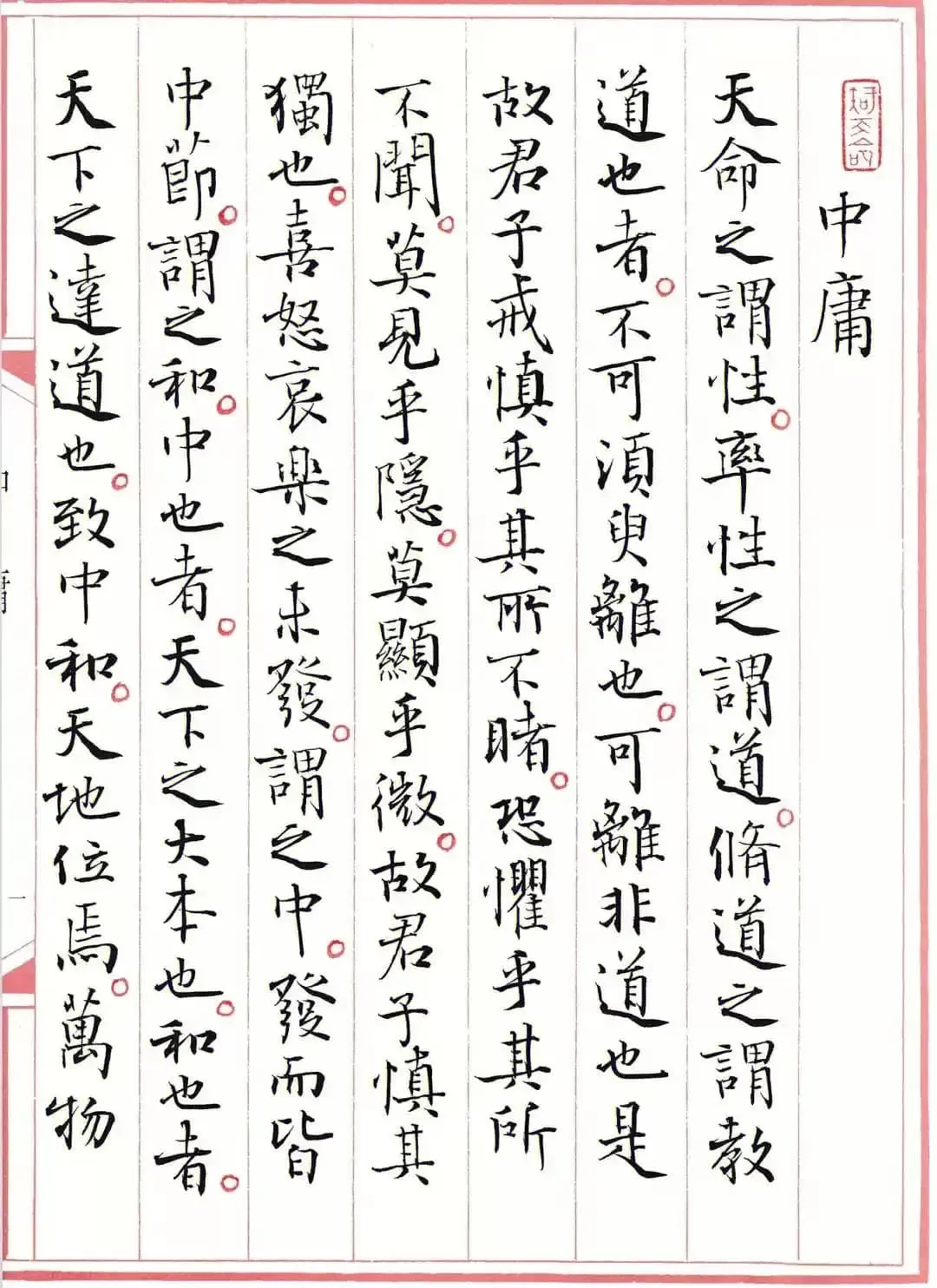
The Doctrine of the Mean represents the moral standard of Confucianism, adhered to and esteemed by Confucian scholars throughout history. Also known as "zhongyong," where "zhong" signifies moderation and "yong" denotes common practice or constancy, it emphasizes maintaining a balanced and harmonious attitude in interpersonal relationships, adapting actions to the times, circumstances, events, and local conditions. The theoretical foundation of Confucianism stems from human nature. It originates from the Analects, specifically the chapter "Yong Ye," stating, "The Doctrine of the Mean is the highest virtue." He Yan's commentary explains, "Yong refers to constancy; it is the way of moderate harmony that can be consistently practiced."
"The Doctrine of the Mean" is one of the classic "Four Books" of Confucianism, originally the 31st chapter of the "Book of Rites." Its composition is believed to date from the late Warring States period to the early Western Han Dynasty, with the exact authorship still debated. One theory attributes it to Kong Ji (Zi Si), while another suggests it was written by scholars during the Qin or Han dynasties. Confucian scholars of the Song Dynasty highly revered the Doctrine of the Mean and extracted it from the "Book of Rites" to form an independent work. Zhu Xi later compiled it with the "Analects," "Mencius," and "Great Learning" into the "Four Books."
"The Doctrine of the Mean" is a prose discussing Confucian self-cultivation and was originally the 31st chapter of the "Book of Rites." Traditionally attributed to Kong Ji (Zi Si), the grandson of Confucius, it is a classic treatise of Confucian thought. It was greatly esteemed by Cheng Hao and Cheng Yi of the Northern Song Dynasty, and Zhu Xi of the Southern Song Dynasty wrote the "Collected Commentaries on the Doctrine of the Mean," which, along with the "Great Learning," "Analects," and "Mencius," became known as the "Four Books."
After the Song and Yuan dynasties, Confucian classics, represented by "The Doctrine of the Mean," became designated textbooks in schools and required reading for imperial examinations, exerting a profound influence on ancient Chinese education. Concepts such as the "Five Constant Virtues," the "Three Universal Virtues," "Cultivating Solitude and Self-Discipline," and "Achieving Sincerity and Fulfilling One's Nature" proposed in "The Doctrine of the Mean" continue to significantly impact personal conduct and character cultivation today.
The theoretical basis of the Doctrine of the Mean is the unity of heaven and man. Often, discussions on the unity of heaven and man focus on philosophical aspects, starting with Mencius' statement, "To fully realize one's heart is to know one's nature; to know one's nature is to know Heaven." However, this overlooks the unity of heaven and man within the Doctrine of the Mean and its true meaning.
The true meaning of the unity of heaven and man lies in achieving utmost sincerity and goodness, reaching the realm where "When perfect harmony is attained, heaven and earth will be in their proper places, and all things will flourish," and "Only the utmost sincere person in the world can fully realize his own nature. If one can fully realize his own nature, he can fully realize the nature of others. If one can fully realize the nature of others, he can fully realize the nature of things. If one can fully realize the nature of things, he can assist in the transformation and nourishment of heaven and earth. By assisting in the transformation and nourishment of heaven and earth, one can participate in the harmony of heaven and earth." It is evident that "participating in the harmony of heaven and earth" is the true meaning of the unity of heaven and man in "The Doctrine of the Mean." Therefore, "The Doctrine of the Mean" begins with "What heaven imparts is called nature; following nature is called the Way; cultivating the Way is called education" and concludes with "The operations of heaven are silent and odorless. This is the utmost." This represents the highest realm that sages aspire to achieve, the true unity of heaven and man.

Provides The Most Comprehensive English Versions Of Chinese Classical Novels And Classic Books Online Reading.
Copyright © 2025 Chinese-Novels.com All Rights Reserved
